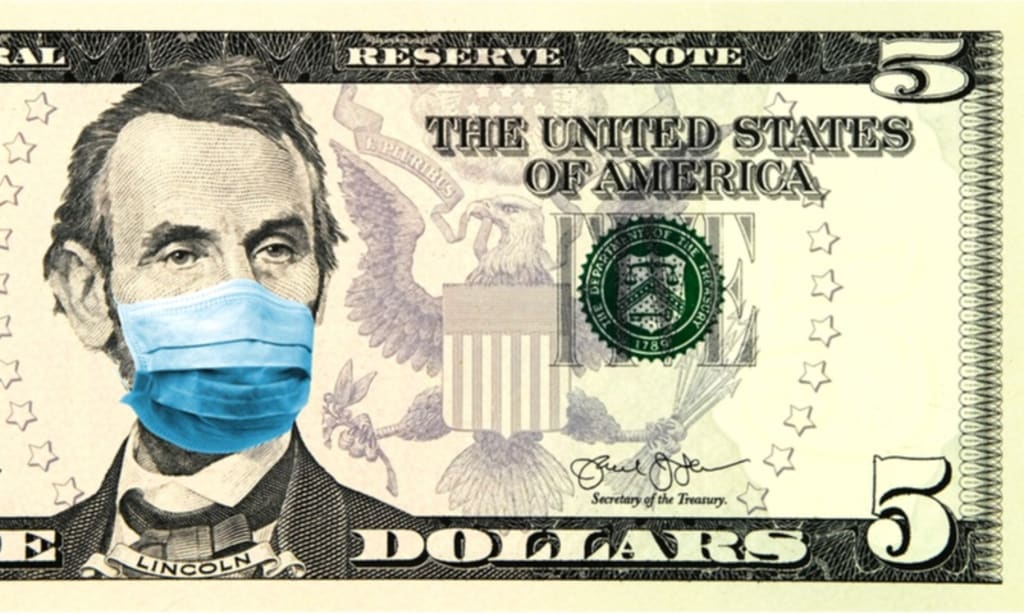U.S. Areas Hit Hardest Economically By The Covid-19 Pandemic
The Covid-19 Pandemic Effects

2020 has forced us to face down several imminent crises. In January, Australia was ravaged by rampant bush fires, wiping out huge swaths of the Australian landscape and costing dozens of lives and millions in property damage. In February, an Iranian general was assassinated by US forces and a Ukrainian passenger plane was erroneously shot down, making the occurrence of a large-scale global conflict seem highly plausible. Now, in March, we are faced with a new crisis: the COVID-19 pandemic.
Although the first cases were reported way back in 2019, the COVID-19 virus (also known simply as the Coronavirus) has only become a worldwide concern much more recently. As of yet, there is no vaccine with which to halt the spread of the disease, and affected countries have begun adopting increasingly drastic measures to combat the virus.
These measures have expanded to include mass quarantines, mandatory self-isolation for infected individuals and fines for anyone caught outside without good reason. In the countries hit hardest, the full lockdown has gone into effect, with everyone confined to their homes, forbidden to leave their homes except to visit a physician or purchase food and supplies. Regardless of their country or location, people around the world are doing everything they can to keep COVID-19 out of their homes.
COVID-19’s effect on the economy
As one might imagine, these measures have a devastating effect on local, regional and national economies. Businesses are closing, as demand for many products and services evaporates almost completely. Workers left jobless are faced with the grim prospects that come as a result of them losing their source of income.
The United States has not escaped these harsh realities. As entire states begin to issue mandatory quarantines, the economy has begun to suffer the effects of this massive disturbance of the supply-demand dynamic. The stock market has fallen into a state of disarray, as shareholders and investors scramble to protect or liquefy their assets, with many financial experts predicting a large-scale recession.
However, the US is a vast and diverse state, both geographically and economically. Due to the obvious differences between various different locales across the nation, certain areas have been affected much more drastically than others. Agrarian communities are not so heavily affected by lockdowns, for example, as automation and low staffing requirements have made these communities much easier to manage with a limited staff.
Now, let’s take a look at some of the areas most drastically affected by the pandemic, and conversely, those less and least affected economically, as well as what makes the difference between them. Let’s begin.
Heavily affected: California
As regions in the United States go, southern California is not particularly conducive to industry. With it’s dry and arid climate, agriculture is not particularly viable without extensive irrigation and advanced cultivation techniques. Although certain crops grow well in the climate, the state relies heavily on other sectors to carry the bulk of its economy.
Among the sectors that account for the lion’s share of California’s industry are technology, real estate and manufacturing. These manpower-hungry industries all have suffered crippling damage from the virus, as mandatory quarantines and self isolation sweep the state.
The real estate industry, for example, has been particularly hard hit by the pandemic. While there are certainly ways to sell a house during a pandemic, the simple fact is that demand for housing goes way down during such an event. Even when observing proper social distancing procedures during the home buying/selling process, there’s only so much you can do to minimize risk.
One industry that has not suffered quite so heavily is energy. With its wide variety of wind energy farms, solar energy farms and nuclear power plants, California exports a phenomenal amount of energy. Due to the low maintenance nature of these power facilities, they have been largely unaffected by the outbreak.
Less heavily affected: Florida
While Florida is home to a booming agricultural scene, the industry accounting for the largest share of its GDP is tourism. As it usually brings in over $50 billion a year, it’s easy to see how Florida’s tourism industry has suffered so heavily in these past months. Every sector of the tourism industry has been affected by the decrease in clientele, with amusement parks and other tourist attractions seeing the most crippling losses.
Another area where Florida has been heavily affected is international trade. With a number of extremely high-traffic ports along its coasts, Florida has long relied heavily on international trade for a huge share of its GDP. With international trade greatly decreased in an effort to slow the spread of the virus, many of Florida’s ports are beginning to resemble ghost towns, as fewer and fewer ships frequent them.
Things aren’t quite as hopeless as they may seem for Florida, however; the agricultural industry accounts for a large portion of Florida’s GDP, and it has not been heavily affected by the pandemic. Florida is also home to a large number of aerospace research and manufacturing plants, which are aiding the regional economy in staying afloat.
Least heavily affected: Iowa
Of all the states affected by the COVID-19 outbreak, perhaps the state most unaffected economically has been Iowa. With an economy largely reliant on agriculture, this state has an industry that does not rely on large amounts of manual labor, as many of the largest agricultural operations are as automated as possible and require a comparatively small amount of manpower.
Many of Iowa’s other industries, such as energy, are also largely unaffected by the outbreak, leaving the state in an excellent position in the midst of this outbreak. In fact, with the increased demand for raw foodstuffs, it’s possible that the COVID-19 outbreak may actually end up leaving Iowa in a better economic state than before.
Conclusion
The COVID-19 outbreak is a frightening demonstration of the extent to which our medical system is unprepared for just such an outbreak, as well as the fragility of the existing economic order. Whether or not your region has escaped the harsh consequences of the outbreak, a recession is highly likely at this point, and it would be prudent to prepare for such an event.
Did you find our article useful and informative? Want to leave some feedback, or ask a question? Get in touch with us in the comments section below, and we’ll do our best to address whatever call into question.
About the Creator
Beni Restea
I'm a member of the content team at The OFFICIAL Real Estate Agent Directory®, producing countless informative and trendy real estate articles for RealEstateAgent.com and its many outlets.






Comments
There are no comments for this story
Be the first to respond and start the conversation.